Презентация liabilities obligations

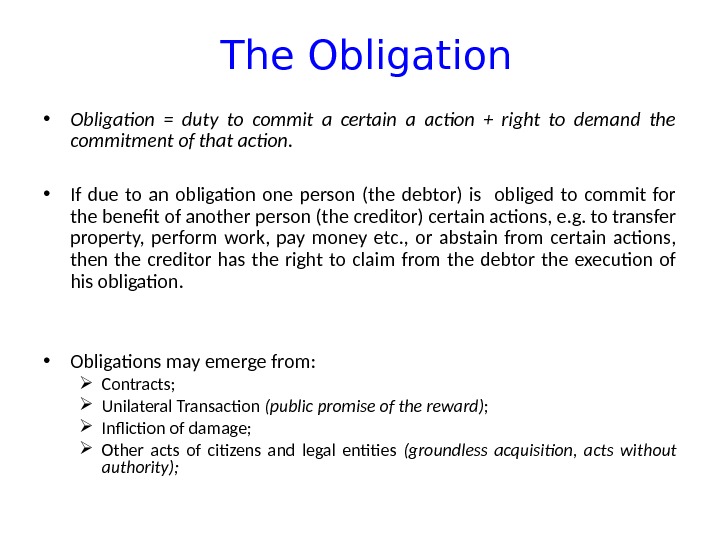
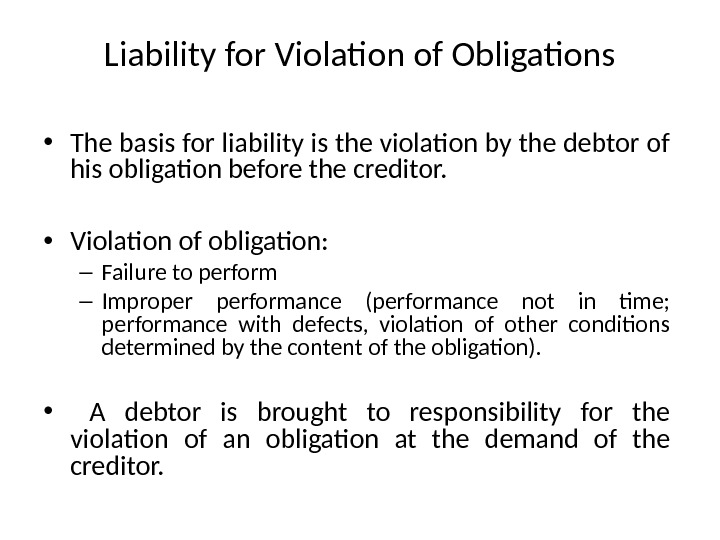
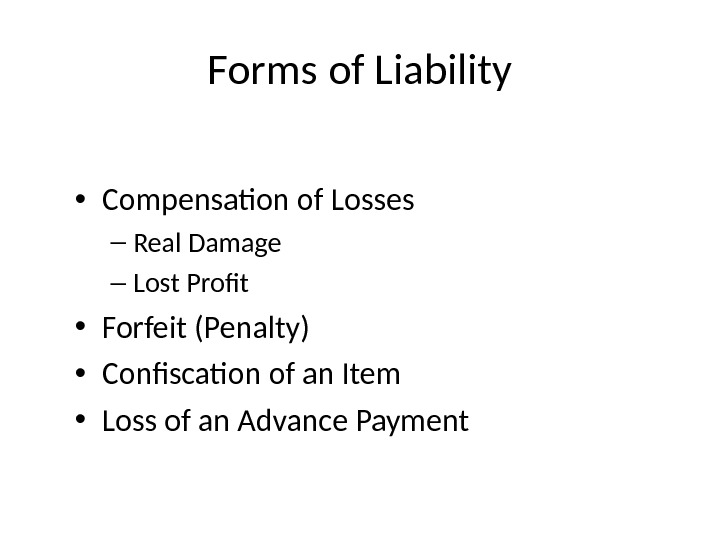
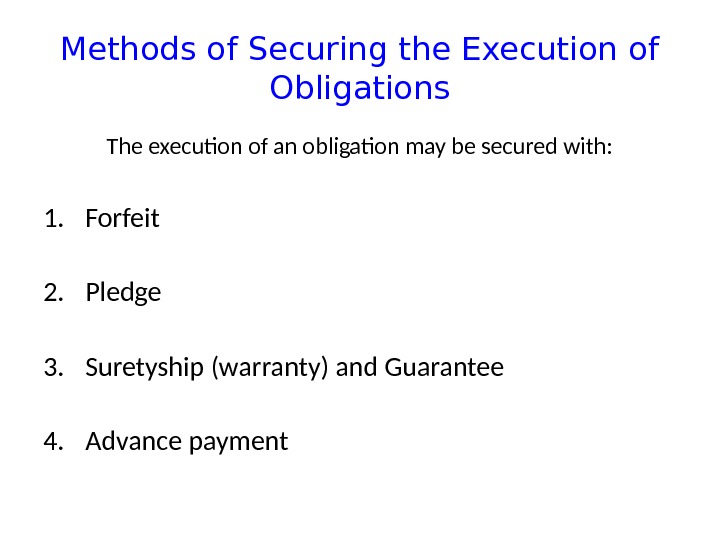
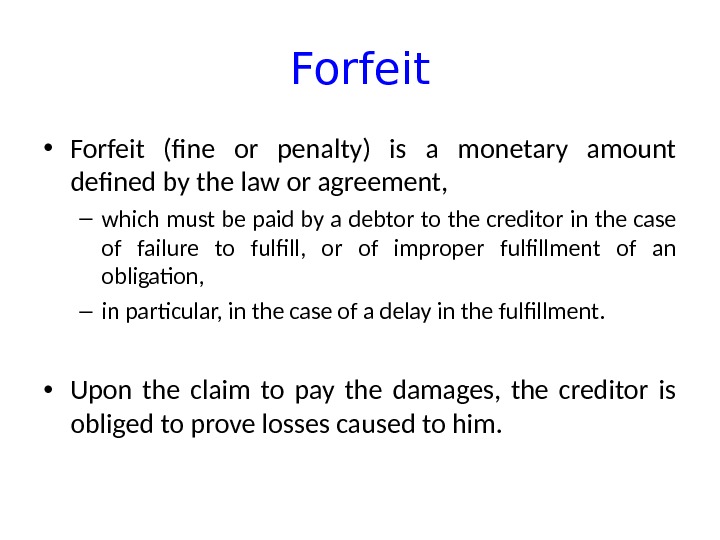
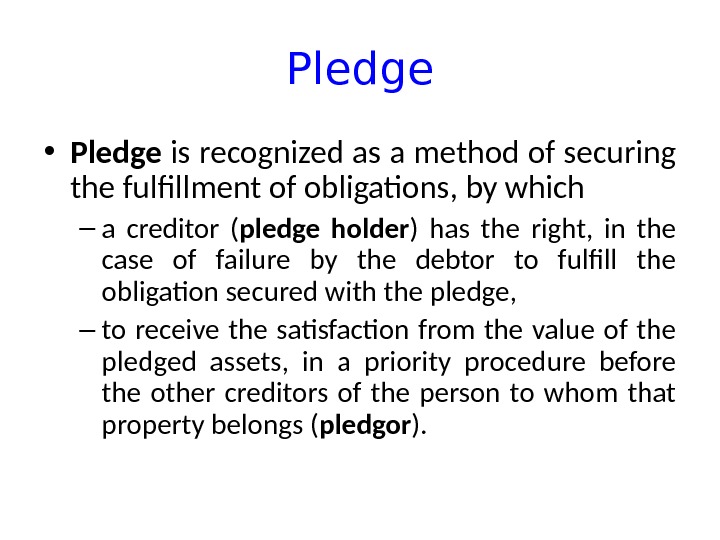
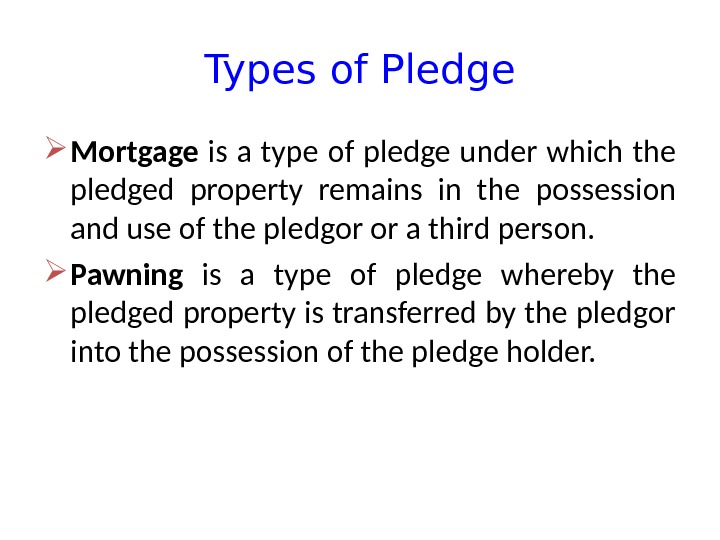
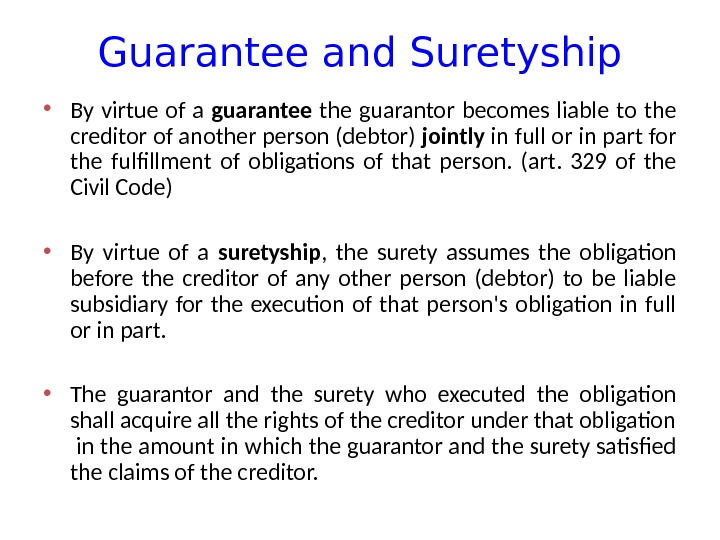
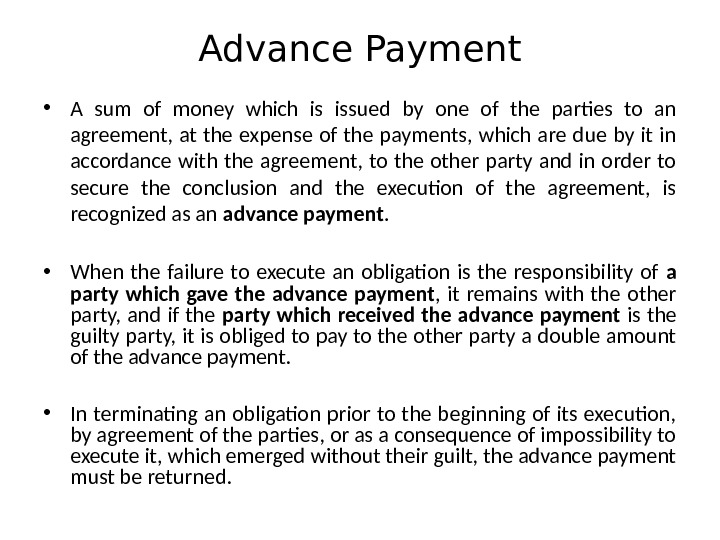
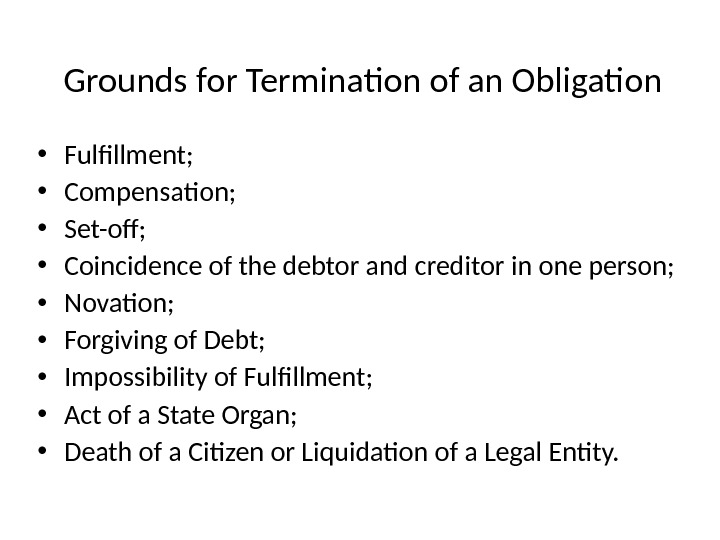
- Размер: 168.5 Кб
- Количество слайдов: 10
Описание презентации Презентация liabilities obligations по слайдам
 The Obligation • Obligation = duty to commit a certain a action + right to demand the commitment of that action. • If due to an obligation one person (the debtor) is obliged to commit for the benefit of another person (the creditor) certain actions, e. g. to transfer property, perform work, pay money etc. , or abstain from certain actions, then the creditor has the right to claim from the debtor the execution of his obligation. • Obligations may emerge from: Contracts; Unilateral Transaction (public promise of the reward); Infliction of damage; Other acts of citizens and legal entities (groundless acquisition, acts without authority);
The Obligation • Obligation = duty to commit a certain a action + right to demand the commitment of that action. • If due to an obligation one person (the debtor) is obliged to commit for the benefit of another person (the creditor) certain actions, e. g. to transfer property, perform work, pay money etc. , or abstain from certain actions, then the creditor has the right to claim from the debtor the execution of his obligation. • Obligations may emerge from: Contracts; Unilateral Transaction (public promise of the reward); Infliction of damage; Other acts of citizens and legal entities (groundless acquisition, acts without authority);
 Liability for Violation of Obligations • The basis for liability is the violation by the debtor of his obligation before the creditor. • Violation of obligation: – Failure to perform – Improper performance (performance not in time; performance with defects, violation of other conditions determined by the content of the obligation). • A debtor is brought to responsibility for the violation of an obligation at the demand of the creditor.
Liability for Violation of Obligations • The basis for liability is the violation by the debtor of his obligation before the creditor. • Violation of obligation: – Failure to perform – Improper performance (performance not in time; performance with defects, violation of other conditions determined by the content of the obligation). • A debtor is brought to responsibility for the violation of an obligation at the demand of the creditor.
 Forms of Liability • Compensation of Losses – Real Damage – Lost Profit • Forfeit (Penalty) • Confiscation of an Item • Loss of an Advance Payment
Forms of Liability • Compensation of Losses – Real Damage – Lost Profit • Forfeit (Penalty) • Confiscation of an Item • Loss of an Advance Payment
 Methods of Securing the Execution of Obligations The execution of an obligation may be secured with: 1. Forfeit 2. Pledge 3. Suretyship (warranty) and Guarantee 4. Advance payment
Methods of Securing the Execution of Obligations The execution of an obligation may be secured with: 1. Forfeit 2. Pledge 3. Suretyship (warranty) and Guarantee 4. Advance payment
 Forfeit • Forfeit (fine or penalty) is a monetary amount defined by the law or agreement, – which must be paid by a debtor to the creditor in the case of failure to fulfill, or of improper fulfillment of an obligation, – in particular, in the case of a delay in the fulfillment. • Upon the claim to pay the damages, the creditor is obliged to prove losses caused to him.
Forfeit • Forfeit (fine or penalty) is a monetary amount defined by the law or agreement, – which must be paid by a debtor to the creditor in the case of failure to fulfill, or of improper fulfillment of an obligation, – in particular, in the case of a delay in the fulfillment. • Upon the claim to pay the damages, the creditor is obliged to prove losses caused to him.
 Pledge • Pledge is recognized as a method of securing the fulfillment of obligations, by which – a creditor ( pledge holder ) has the right, in the case of failure by the debtor to fulfill the obligation secured with the pledge, – to receive the satisfaction from the value of the pledged assets, in a priority procedure before the other creditors of the person to whom that property belongs ( pledgor ).
Pledge • Pledge is recognized as a method of securing the fulfillment of obligations, by which – a creditor ( pledge holder ) has the right, in the case of failure by the debtor to fulfill the obligation secured with the pledge, – to receive the satisfaction from the value of the pledged assets, in a priority procedure before the other creditors of the person to whom that property belongs ( pledgor ).
 Types of Pledge Mortgage is a type of pledge under which the pledged property remains in the possession and use of the pledgor or a third person. Pawning is a type of pledge whereby the pledged property is transferred by the pledgor into the possession of the pledge holder.
Types of Pledge Mortgage is a type of pledge under which the pledged property remains in the possession and use of the pledgor or a third person. Pawning is a type of pledge whereby the pledged property is transferred by the pledgor into the possession of the pledge holder.
 Guarantee and Suretyship • By virtue of a guarantee the guarantor becomes liable to the creditor of another person (debtor) jointly in full or in part for the fulfillment of obligations of that person. (art. 329 of the Civil Code) • By virtue of a suretyship , the surety assumes the obligation before the creditor of any other person (debtor) to be liable subsidiary for the execution of that person’s obligation in full or in part. • The guarantor and the surety who executed the obligation shall acquire all the rights of the creditor under that obligation in the amount in which the guarantor and the surety satisfied the claims of the creditor.
Guarantee and Suretyship • By virtue of a guarantee the guarantor becomes liable to the creditor of another person (debtor) jointly in full or in part for the fulfillment of obligations of that person. (art. 329 of the Civil Code) • By virtue of a suretyship , the surety assumes the obligation before the creditor of any other person (debtor) to be liable subsidiary for the execution of that person’s obligation in full or in part. • The guarantor and the surety who executed the obligation shall acquire all the rights of the creditor under that obligation in the amount in which the guarantor and the surety satisfied the claims of the creditor.
 Advance Payment • A sum of money which is issued by one of the parties to an agreement, at the expense of the payments, which are due by it in accordance with the agreement, to the other party and in order to secure the conclusion and the execution of the agreement, is recognized as an advance payment. • When the failure to execute an obligation is the responsibility of a party which gave the advance payment , it remains with the other party, and if the party which received the advance payment is the guilty party, it is obliged to pay to the other party a double amount of the advance payment. • In terminating an obligation prior to the beginning of its execution, by agreement of the parties, or as a consequence of impossibility to execute it, which emerged without their guilt, the advance payment must be returned.
Advance Payment • A sum of money which is issued by one of the parties to an agreement, at the expense of the payments, which are due by it in accordance with the agreement, to the other party and in order to secure the conclusion and the execution of the agreement, is recognized as an advance payment. • When the failure to execute an obligation is the responsibility of a party which gave the advance payment , it remains with the other party, and if the party which received the advance payment is the guilty party, it is obliged to pay to the other party a double amount of the advance payment. • In terminating an obligation prior to the beginning of its execution, by agreement of the parties, or as a consequence of impossibility to execute it, which emerged without their guilt, the advance payment must be returned.
 Grounds for Termination of an Obligation • Fulfillment; • Compensation; • Set-off; • Coincidence of the debtor and creditor in one person; • Novation; • Forgiving of Debt; • Impossibility of Fulfillment; • Act of a State Organ; • Death of a Citizen or Liquidation of a Legal Entity.
Grounds for Termination of an Obligation • Fulfillment; • Compensation; • Set-off; • Coincidence of the debtor and creditor in one person; • Novation; • Forgiving of Debt; • Impossibility of Fulfillment; • Act of a State Organ; • Death of a Citizen or Liquidation of a Legal Entity.

